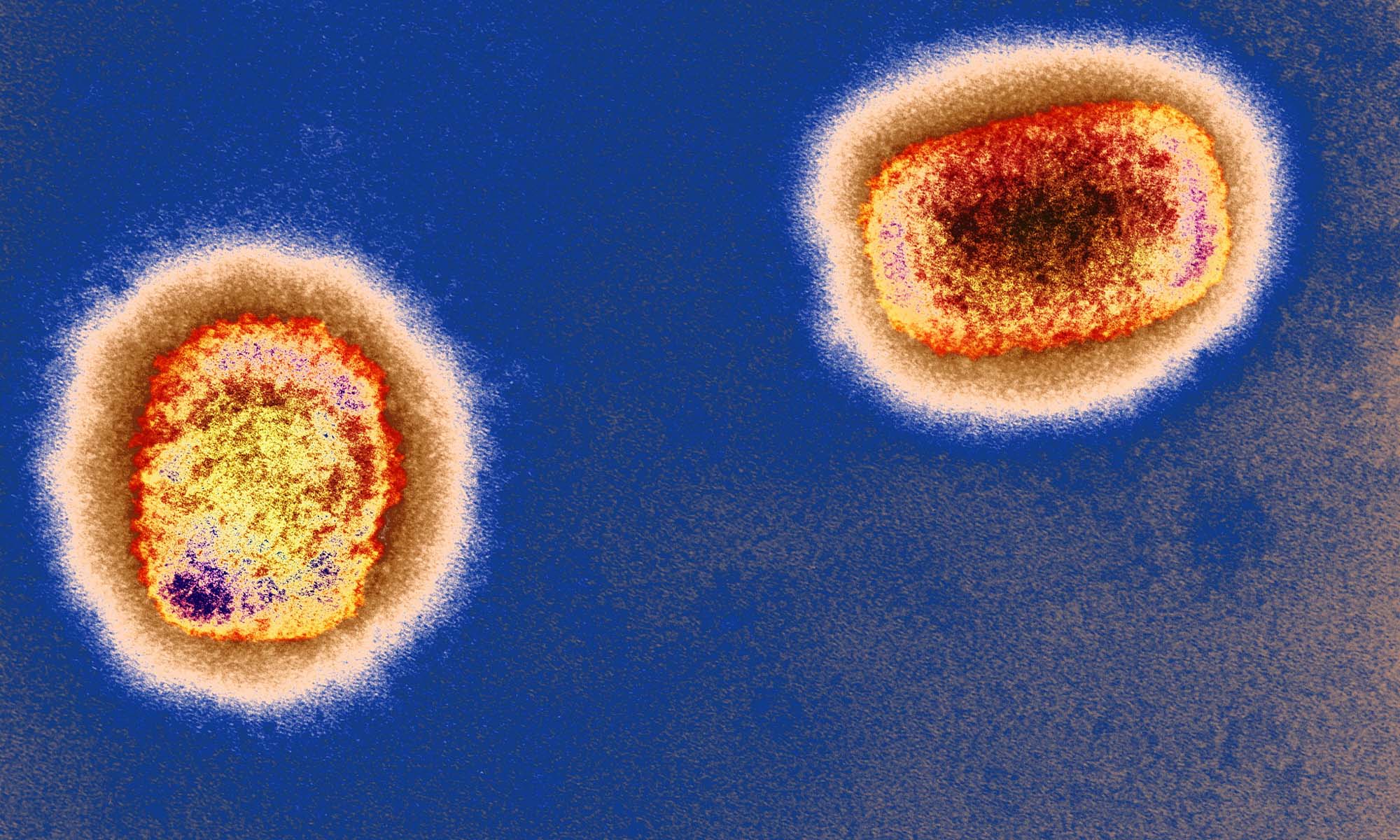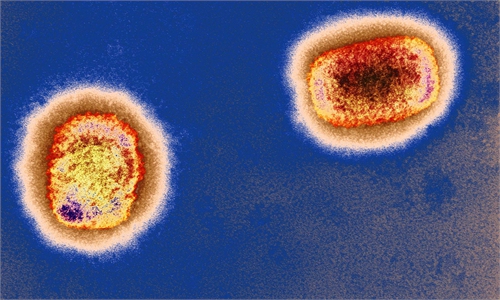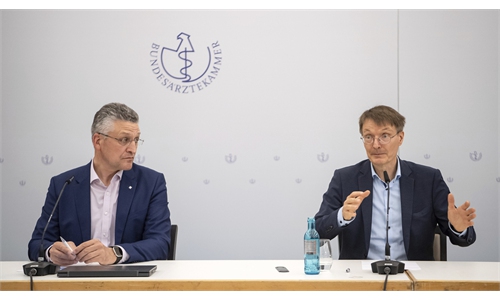China issues monkeypox guidance as WHO considers declaring 'emergency of international concern'

The monkeypox virus Photo:VCG
China's health authorities on Wednesday issued monkeypox diagnosis and treatment guidelines via official social media accounts as cases have been reported across nearly 30 non-endemic countries and regions since May, with experts calling for monitoring the potential risk of the virus being imported into China.
No monkeypox cases have been reported in China. At present, there are no specific treatments available, and treatment for it remains supportive and targeted on symptoms, according to the guidelines.
More than 1,600 confirmed cases and almost 1,500 suspected cases have been reported to the World Health Organization (WHO) so far this year, across 39 countries and regions, according to a report by the UN on Tuesday. The WHO has evaluated the monkeypox risk as moderate at the global level, said the latest report by the WHO on June 10.
The global outbreak of monkeypox is clearly "unusual and concerning," said WHO Director-General Tedros Adhanom Ghebreyesus, according to the report on Tuesday.
WHO experts will meet on June 23 to evaluate whether the outbreak represents "a public health emergency of international concern," which is the highest level of global alert, applying only to the COVID-19 pandemic and polio, said the report.
Considering the risk of infection and the ongoing global COVID-19 pandemic, non-essential international travel is one of the measures to reduce the transmission risk, Lu Hongzhou, head of the Third People's Hospital of Shenzhen, told the Global Times on Wednesday.
The authorities should be alert to the possible spread from international animal transportation, and animals with a potential risk of monkeypox infection should be quarantined and observed for 30 days, Lu said.
Studies have shown that smallpox vaccines can provide about 85 percent protection against monkeypox, reducing the severe symptoms, Lu said.
But the probability of infections among the Chinese general population is still "at a low-risk level," and there is no need for panic or large-scale vaccination, Lu said, noting that if suspicious symptoms occur, people should seek professional medical advice.
China's customs authorities have enhanced their monitoring. It is still necessary to conduct strict prevention and control measures for inbound personnel from countries and regions where monkeypox cases were reported and issue travel warnings to people going to areas with monkeypox outbreaks, said a Beijing-based expert on condition of anonymity.
The virus is transmitted to humans through close contact with an animal or an infected person, or droplets, or with virus-contaminated objects. It can also be passed from a mother to a baby via the placenta, and sexual transmission cannot be ruled out, according to the guidance.
The incubation period for the disease is mostly from six to 13 days but it also can range from five to 21 days, with early syndromes such as chills and fever (a body temperature above 38.5 C), along with the syndromes like headache, fatigue, back pain and myalgia.


